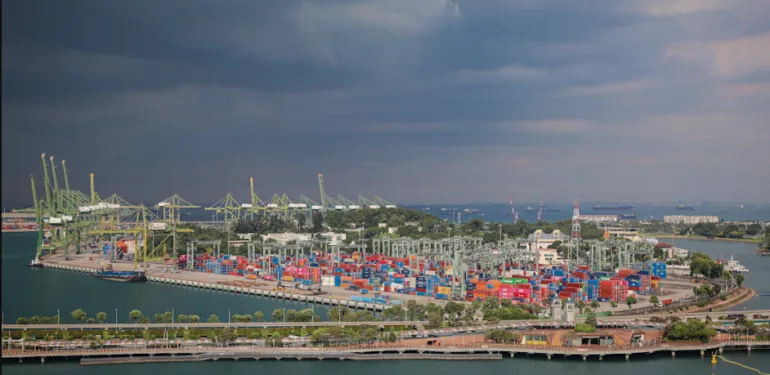Singapore downgraded its economic growth forecast for 2025 on Monday, as the trade-reliant city-state braces for the impact of escalating US tariffs and ongoing US-China trade tensions, the government announced.
Although President Donald Trump imposed a baseline 10 percent tariff on Singapore, the broader global fallout from higher tariffs targeting dozens of other countries has raised concerns for Singapore’s export-driven economy.
The Ministry of Trade and Industry (MTI) reported that the economy expanded by 3.8 percent year-on-year in the first quarter, a slowdown from the previous quarter’s 5.0 percent growth.
As a result, the MTI revised its full-year GDP growth forecast to a range of 0.0 to 2.0 percent, down from the earlier projection of 1.0 to 3.0 percent.
“The sweeping tariffs introduced by the US, along with the protracted US-China trade war, are expected to significantly dampen global trade and economic activity,” the ministry stated.
The MTI noted that the US growth outlook has weakened as higher import costs are likely to curb consumer spending. Meanwhile, China is also expected to face a slowdown, with export growth likely to stall amid trade hostilities.
The outlook for Asia as a whole is dimming as well. “Growth across the region will be negatively impacted by falling external demand, driven in part by the wider repercussions of the tariffs on global trade and growth,” the ministry added.
The situation remains fluid, the ministry cautioned, as global markets remain volatile and policymakers in major economies consider their next moves.
In a related development, the Monetary Authority of Singapore (MAS) eased monetary policy for the second consecutive time, aiming to buffer the economy from the tariffs’ adverse effects.
The MAS announced it would reduce the rate of appreciation of its policy band — the Singapore dollar nominal effective exchange rate — reflecting a more subdued inflation outlook amid slower economic activity.
Unlike many central banks that adjust interest rates, MAS conducts monetary policy through exchange rate management, allowing the Singapore dollar to appreciate or depreciate against a basket of currencies within a confidential trading band.
AFP


